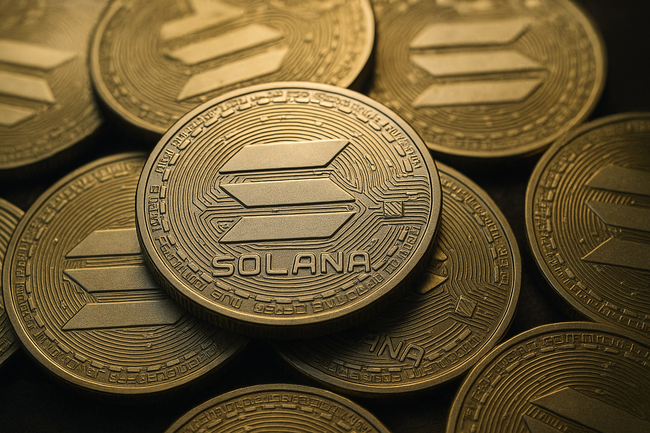Highlights:
- Solana validators gave over 99% support to the Alpenglow proposal, showing strong community backing.
- Solana has approved the Alpenglow upgrade to bring sub-second block finality and transform transaction processing speed.
- The upgrade adds new validator rules and systems designed to support high-frequency applications.
Solana has affirmed overriding community support in its Alpenglow upgrade. The proposal seeks to change the foundational consensus mechanism of the network and has already gained close unanimous backing. Statistics indicate that over 99.6% of validators voted in support, with only a low percentage voting against.
Solana’s new consensus proposal Alpenglow (SIMD-0326) is currently marked as passed, with the voting period running from Epochs 840 to 842 (ending around Sept 2, 1:40 PM UTC). Although 62.6% of votes remain uncast, strong community support suggests it will hold. Alpenglow aims to…
— Wu Blockchain (@WuBlockchain) September 1, 2025
The process of governance started on August 21 and needed at least 33% turnout in order to have a quorum. This goal was reached earlier and justified the legitimacy of the proposal. The continued voting lasted until Epoch 842, and the number of supporters was always high.
At Epoch 840, turnout data indicated 10.6% of eligible voters cast in support, with only 0.12% opposed. Although the number of participants might seem small, there is a validator alignment of the proposal. The result is one of the most important governance votes Solana has ever had. With finality becoming faster, the approval represents a step toward embracing ambitious technical changes that bring the network closer to traditional financial infrastructure.
Solana Approves Alpenglow Upgrade to Deliver Sub-Second Finality
Alpenglow changes the Solana consensus structure by moving from the Proof-of-History (POH) and TowerBFT systems. The upgrade will replace it with two new protocols called Votor and Rotor. The goal of these innovations is to decrease block finality to only 150 milliseconds.
1/ Rotor is Solana’s new block propagation protocol introduced in the Alpenglow upgrade. It’s a single layer of relayers that replaces Turbine’s multi-hop, delivering blocks faster and more uniformly across the network 🧵 pic.twitter.com/0KhpLuLe8u
— Anza (@anza_xyz) August 13, 2025
Votor enables validators to notarize or skip blocks off-chain and commit small proofs on-chain. Blocks are complete after 80% of the validators take part. Assuming that participation has dropped to 60%, a second round will finish the process. The rotor speeds up the sharing of data, which makes it easier for nodes to agree on the network.
The upgrade also changes the validators’ operational structure. All validators will pay a fee of 1.6 SOL per epoch. The new fee is less than the existing vote fees. The fee will be burnt to cover inflation. Validators who abstain or vote inconsistently are punished, either by loss of rewards or by possible exclusion from the active set. These regulations aim to uphold high attendance and equal treatment. There have been suggestions of tiered fees depending on stake size by some community members, though these amendments are yet to be established.
The performance boost could make Solana available for new applications in the industry. Researchers think that gaming, trading, and financial applications will take advantage of the fact that transactions can be verified within a fraction of a second. The upgrade brings Solana nearer to the responsiveness of Web2 infrastructure, which has been considered a standard for blockchain implementation.
Implementation Timeline and Impact on Solana’s Competitive Edge
The final step of the governance process is the completion of Epoch 842, and the implementation of the upgrade will likely occur shortly thereafter. Assuming its successful implementation, Alpenglow would make Solana the fastest major blockchain in layer-1, with speeds faster than both Sui and Ethereum.
Sui, which was responsible for the Cetus hack, now completes transactions in 400 milliseconds, and Ethereum takes more than ten seconds to add a transaction. The finality proposed by Solana of 150 milliseconds could also be faster than Google searches, with an average of 200 milliseconds.
The upcoming Firedancer client will enhance network resilience and decrease dependence on the existing Agave client. This diversification will help in averting disturbances associated with single-client risks.
Best Crypto Exchange
- Over 90 top cryptos to trade
- Regulated by top-tier entities
- User-friendly trading app
- 30+ million users
eToro is a multi-asset investment platform. The value of your investments may go up or down. Your capital is at risk. Don’t invest unless you’re prepared to lose all the money you invest. This is a high-risk investment, and you should not expect to be protected if something goes wrong.






